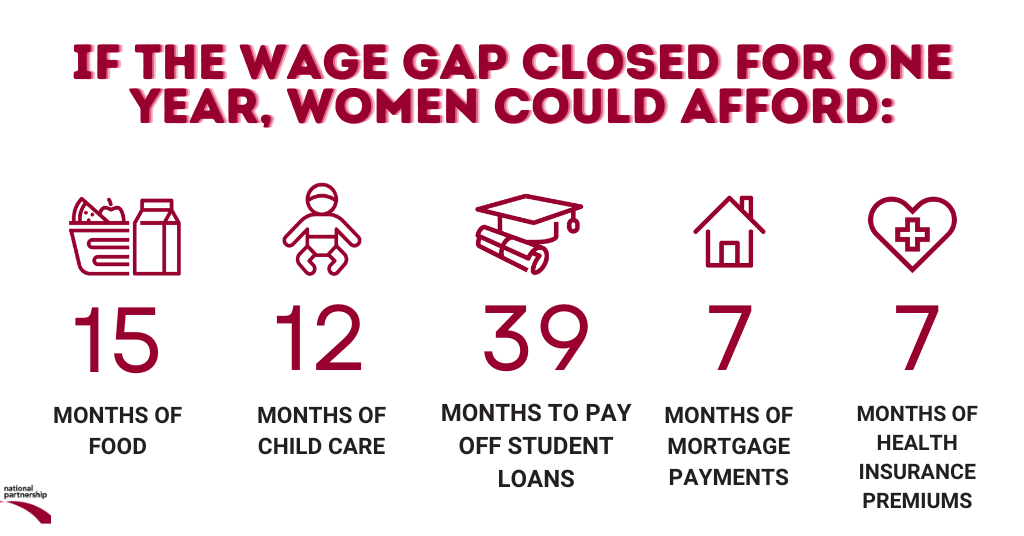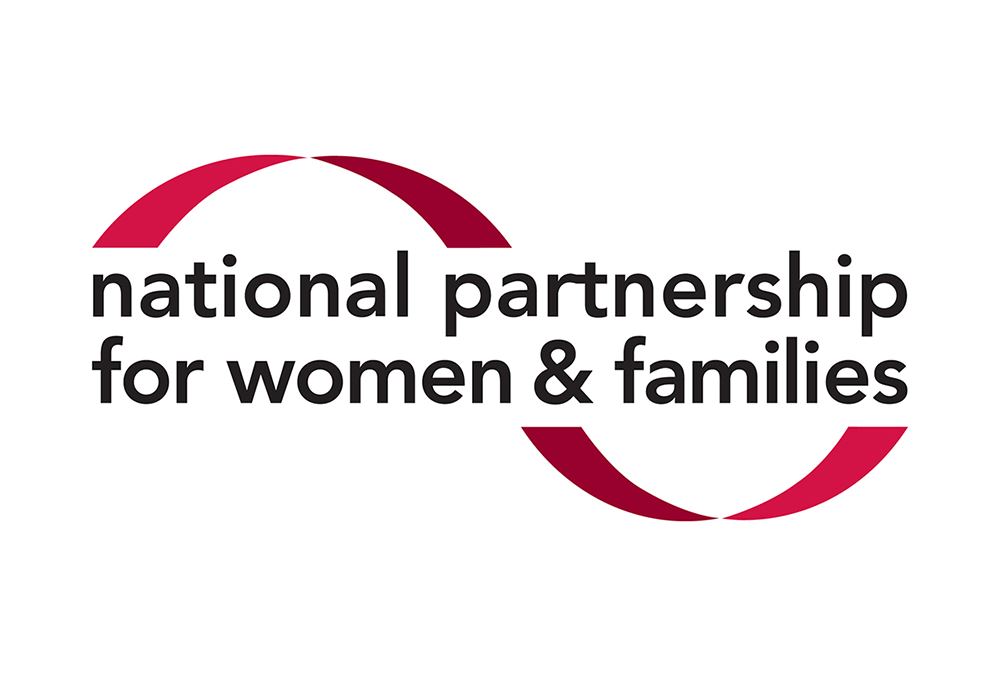Statement of Jocelyn Frye, President of the National Partnership for Women & Families WASHINGTON, D.C. – June 28, 2024 – Today, the Supreme Court upended sound, longstanding, legal precedent that has provided protections for everyday people for decades...

The Wage Gap #IRL (In Real Life) for Women of Color
Women of color are subjected to wide gender wage gaps due to experiencing the double bind of sexism and white supremacy in the United States and how our country systematically devalues women of color and their labor.
State of the Union for Women
The National Partnership for Women & Families and Paid Leave for All created a this new map to show that in all of the states that have taken extreme measures to ban abortion, none of those states offer paid family leave.

America’s Women and the Wage Gap
Every state has a gender wage gap, and it persists regardless of industry and education level and within occupations.
Leveraging Value-Based Payment to Advance Health Equity
We need to change how (and for what) providers are paid, in order to support and incentivize equitable, high-quality primary care.

Democracy & Abortion Access
In a political landscape that moves the question of abortion access to the states, NPWF demonstrates the connection between the representation of women and women of color in state legislatures and better policy outcomes for those seeking abortions.
Fact Sheet: Black Women’s Maternal Health
The United States has become even more dangerous for Black people to give birth. Regardless of socioeconomic status, Black women and birthing individualsNOTE: We recognize and respect that pregnant, birthing, postpartum, and parenting people have a range of gender...
Black Women’s Maternal Health
The reproductive health of Black women has long been compromised by interpersonal, institutional, and structural racism. In addition to contending with social and economic drivers of poor health that undermine Black Americans, they have experienced discriminatory health care practices and abuse from slavery to the present.
Rejecting Business as Usual
Black women workers are a critical backbone of the economy. As demonstrated during the COVID-19 pandemic, women were the majority of essential workers who continued to work during the pandemic, providing vital services and sustaining the nation’s economy throughout the public health emergency. Black women disproportionately work in many of these essential roles
How Data Collection Can Help Close the Wage Gap
While overall wage gap measures provide important insight, digging deeply into differences by race, industry, occupation and more is critical.
Our Communities Hold the Solutions
A robust body of research has shown that this type of doula support is associated with better childbirth experiences and healthier outcomes for both parents and babies. Today, doula support is available across a variety of reproductive health experiences, including abortion, miscarriage, stillbirth, and fertility treatment, as well as in other life course settings such as pediatric care, preventive health care, critical care, and palliative or end-of-life care
Improving Our Maternity Care Now Through Doula Support
This report outlines the evidence that supports the unique value of doula support across different communities, the safety and effectiveness of doula support in improving maternal and infant outcomes, the interest of birthing women and people in use of doula support, and the current availability of, and access to, doula services in the United States.
Spotlight on Success: Roots Community Birth Center
The Roots Community Birth Center demonstrates the exceptional value of community-based and -led forms of the birth center model for communities disadvantaged by structural racism, intergenerational underinvestment, and other forms of discrimination.
Improving Our Maternity Care Now Through Community Birth Settings
Research shows that care provided in community birth settings can make a concrete difference in improving maternity care quality and producing better outcomes, including for People of Color. Care in these settings that is led by Black, Indigenous, People of Color is a crucial approach for meeting the needs of communities affected by structural racism and other forms of discrimination. This report outlines the evidence that supports the unique value of community birth settings across different communities.
Improving Our Maternity Care Now Through Midwifery
Research shows that midwifery care provides equal or better care and outcomes compared to physician care on many key indicators, including higher rates of spontaneous vaginal birth, higher rates of breastfeeding, higher birthing person satisfaction with care, and lower overall costs. Community-based and -led midwifery services are especially powerful.
Saving the Lives of Moms & Babies
This 10-part series connects the dots between how different socioeconomic factors affect maternal and infant health, the outsize impact these factors have on Black, Indigenous, and other People of Color (BIPOC) communities, and recommendations to effect the change we need to ensure all moms and babies thrive.
Poor-Quality Built Environments Hurt Moms and Babies
The Problem: Deficiencies in neighborhoods’ physical conditions impair the health of pregnant people and their infants
The Maternal Mental Health Crisis Undermines Moms’ and Babies’ Health
The Problem: Untreated maternal mental health means worse health outcomes for moms and babies
Substance Use Disorder Hurts Moms & Babies
The Problem: Health care and support for pregnant people with substance use disorder are inaccessible and inequitable, and instead they are shamed, stigmatized, and punished.
Incarceration Harms Moms & Babies
The Problem: Mass incarceration is hurting pregnant people and their infants.
Racism Hurts Moms and Babies
The Problem: Racism is hazardous to the health of pregnant people and their infants

